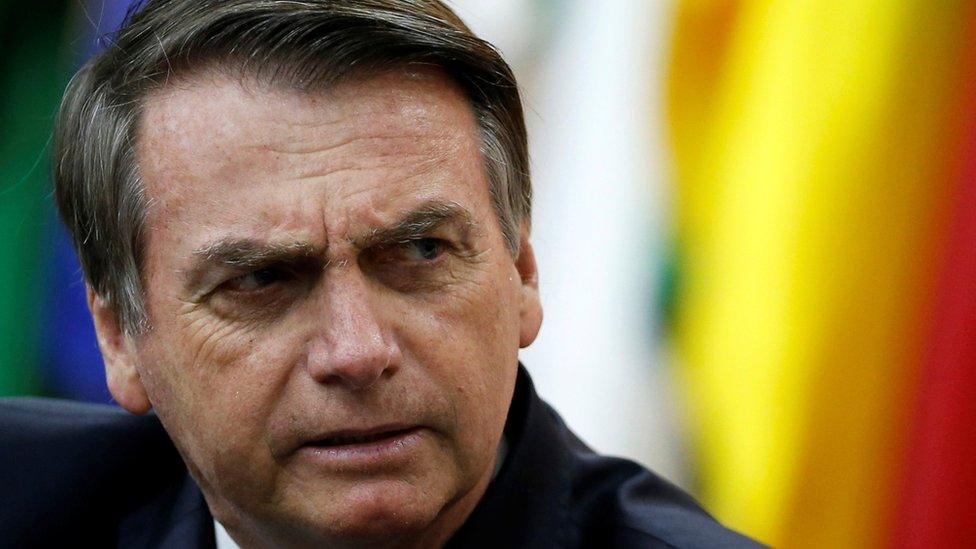Amazon fires: Bolsonaro says Brazil cannot fight them
- Published
President Bolsonaro responds to criticism about his previous comments on the Amazon fires
Brazilian President Jair Bolsonaro has said his government lacks the resources to fight the thousands of fires in the Amazon.
And he again suggested that non-governmental organisations had started fires in the rainforest, but admitted he had no evidence for this claim.
He added that his government was investigating the fires.
Earlier, Brazil's Environment Minister Ricardo Salles was heckled at a meeting on climate change.
Conservationists have blamed Brazil's government for the Amazon's plight.
They say Mr Bolsonaro has encouraged the clearing of land by loggers and farmers, thereby speeding up the deforestation of the rainforest.
Satellite data published by the National Institute for Space research (Inpe) shows an increase of 85% this year in fires across Brazil, external, most of them in the Amazon region.
The largest rainforest in the world, the Amazon is a vital carbon store that slows down the pace of global warming.
What exactly did Bolsonaro say?
Answering questions from reporters on Thursday, Mr Bolsonaro said the government couldn't simply get the ministry of the interior to send 40 men to fight a fire.
"Forty men to fight a fire? There aren't the resources. This chaos has arrived," he said.
On Wednesday, the president had suggested that non-governmental organisations (NGOs) could have started fires as revenge for his government slashing their funding.
President Bolsonaro accuses NGOs of starting Amazon wildfires
Asked on Thursday who was responsible for starting the fires, he responded: "The Indians, do you want me to blame the Indians? Do you want me to blame the Martians?... Everyone is a suspect, but the biggest suspects are NGOs."
Asked if there was any proof of this, he replied: "Did I accuse NGOs directly? I just said I suspect them."
How is the rainforest helping to limit global warming?
President Bolsonaro has further angered those concerned over the spike in fires by brushing off the latest data.
He argued that it was the season of the "queimada", when farmers burn land to clear it before planting but Inpe has noted that the number of fires is not in line with those normally reported during the dry season.
It is not the first time Mr Bolsonaro has cast doubt on figures suggesting that the Amazon is deteriorating rapidly.
Last month, he accused Inpe's director of lying about the scale of deforestation and trying to undermine the government. It came after Inpe published data showing an 88% increase in deforestation in the Amazon in June compared to the same month a year ago.
The director of the agency later announced that he was being sacked amid the row.
What happened to Ricardo Salles?
As the minister took to the stage at the Latin American and Caribbean Climate Week in the Brazilian city of Salvador, some of those present shouted "the Amazon region is burning".
Brazil's environment minister was greeted with heckles at a meeting
As soon as his name was announced, most of those attending the opening session of the plenary booed and shouted, with only a few people clapping.
The conference, organised by the United Nations, aims to promote action on climate change in the region.
It is being attended by representatives from non-governmental organisations, businesses and educational organisations, among others.
What are people upset about?
Climate activists and conservationists have been scathing about the Bolsonaro government and its policies, which favour development over conservation.
They say that since President Bolsonaro took office, the Amazon rainforest has suffered losses at an accelerated rate.
Their anger was further fuelled by satellite data showing a steep rise in fires in the Amazon region this year.
The figures suggest there have been more than 75,000 fires so far this year for the whole of Brazil, compared with just over 40,000 over the same period in 2018. It is the highest number of fires in Brazil since 2010.

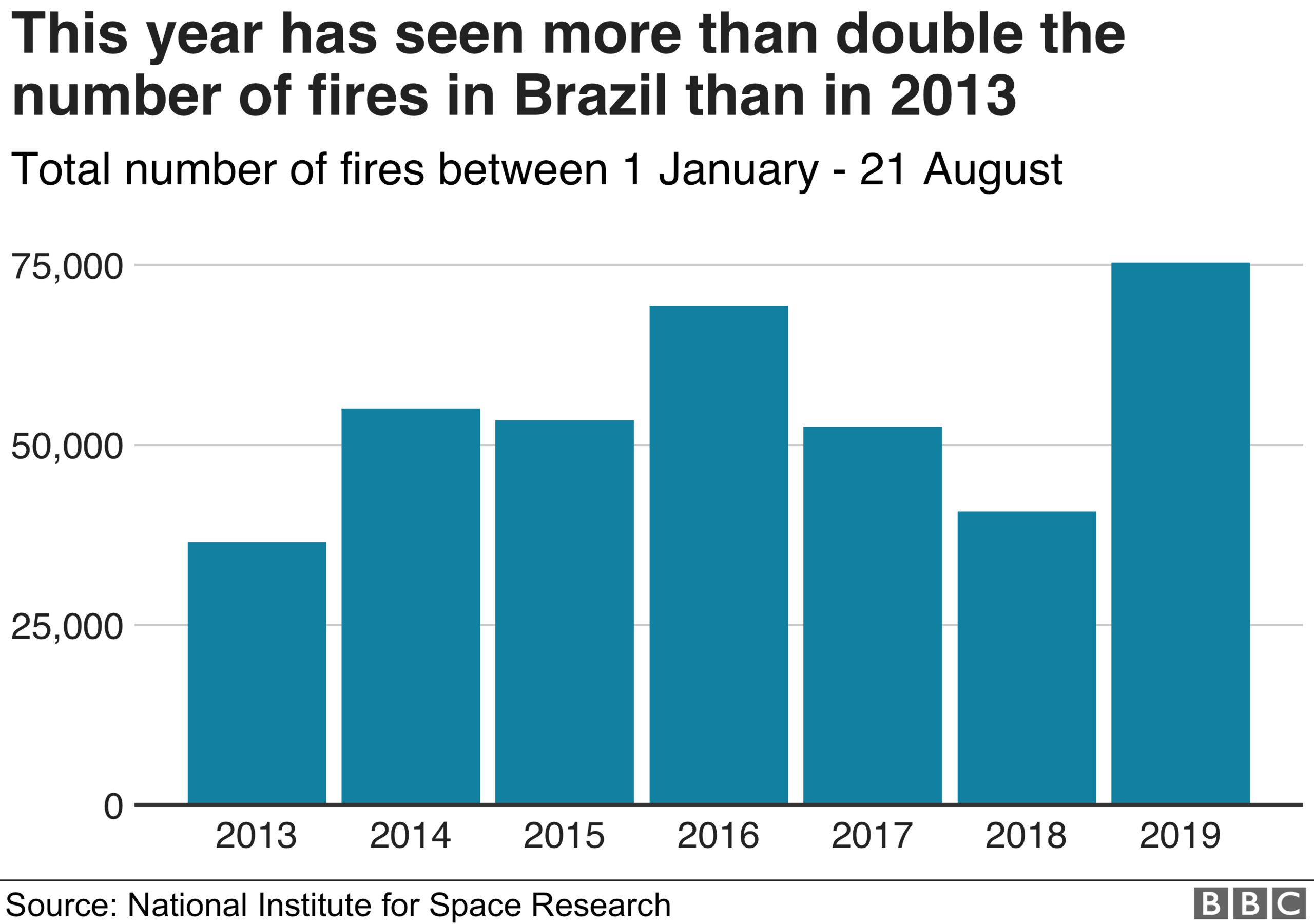

The figures and satellite images showing most of the state of Roraima, in northern Brazil, covered by smoke have shocked many Brazilians and triggered a global Twitter trend under the hashtag #prayforamazonia.
The US space agency, Nasa, has on the other hand said that overall fire activity in the Amazon basin is slightly below average this year.
The region is home to about three million species of plants and animals, and one million indigenous people.

Amazon fires cause stir on social media
BBC UGC and Social News team
The plight of the Amazon has seen millions take to social media to decry reports of a massive yearly increase in forest fires. But some of the most striking - and viral - pictures shared by social media users are not all they seem.
The hashtag #PrayForAmazonia started to be widely used on Tuesday. It has been included in almost three million tweets since.
The most widely shared tweet using that hashtag - with more than a million likes and retweets - includes two aerial images of forest fires, neither of which show the current situation.
Allow X content?
This article contains content provided by X. We ask for your permission before anything is loaded, as they may be using cookies and other technologies. You may want to read X’s cookie policy, external and privacy policy, external before accepting. To view this content choose ‘accept and continue’.

One dates as far back as 1989. And other widely shared images include fires as far away as Siberia or the United States.
A video of a Pataxo woman angrily accusing illegal ranchers of starting fires has almost five million views. But the video has been shared on social media since at least July. So while it may point to one potential reason for the reported increase in forest fires, it's not necessarily a depiction of the present situation.

What causes the fires?
Wildfires often occur in the dry season in Brazil but they are also deliberately started in efforts to illegally deforest land for cattle ranching.
"The dry season creates the favourable conditions for the use and spread of fire, but starting a fire is the work of humans, either deliberately or by accident," Inpe researcher Alberto Setzer told Reuters news agency.
Ricardo Mello, head of the World Wide Fund for Nature (WWF) Amazon Programme, said the fires were "a consequence of the increase in deforestation seen in recent figures".

This article initially stated there was a record number of fires in Brazil this year. After more satellite data was made accessible, it has been updated to reflect the fact the fires are instead the worst since 2010.
- Published21 August 2019
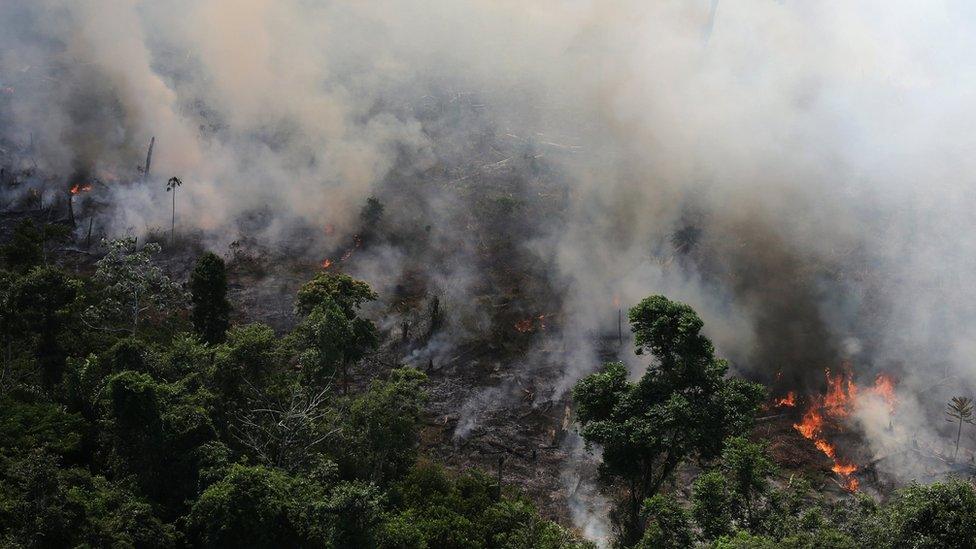
- Published23 August 2019
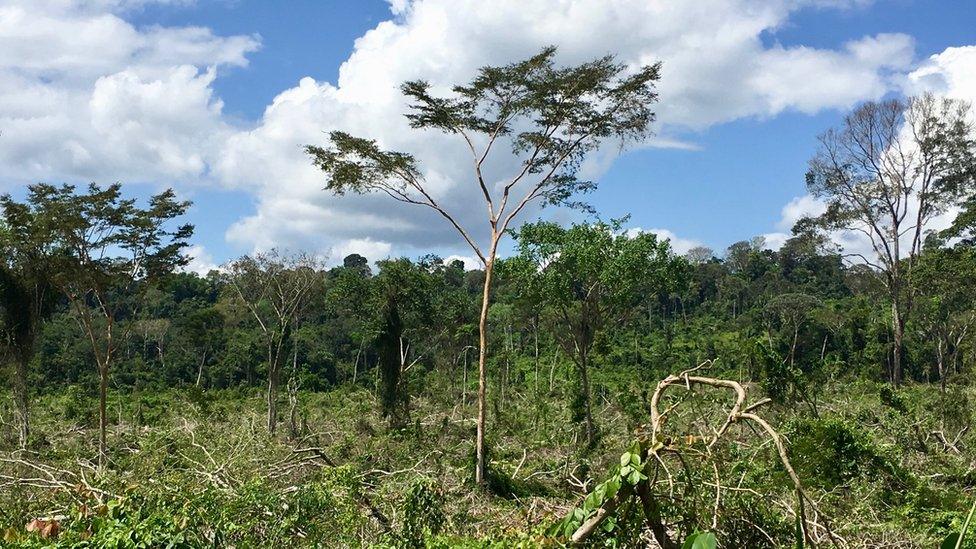
- Published2 August 2019
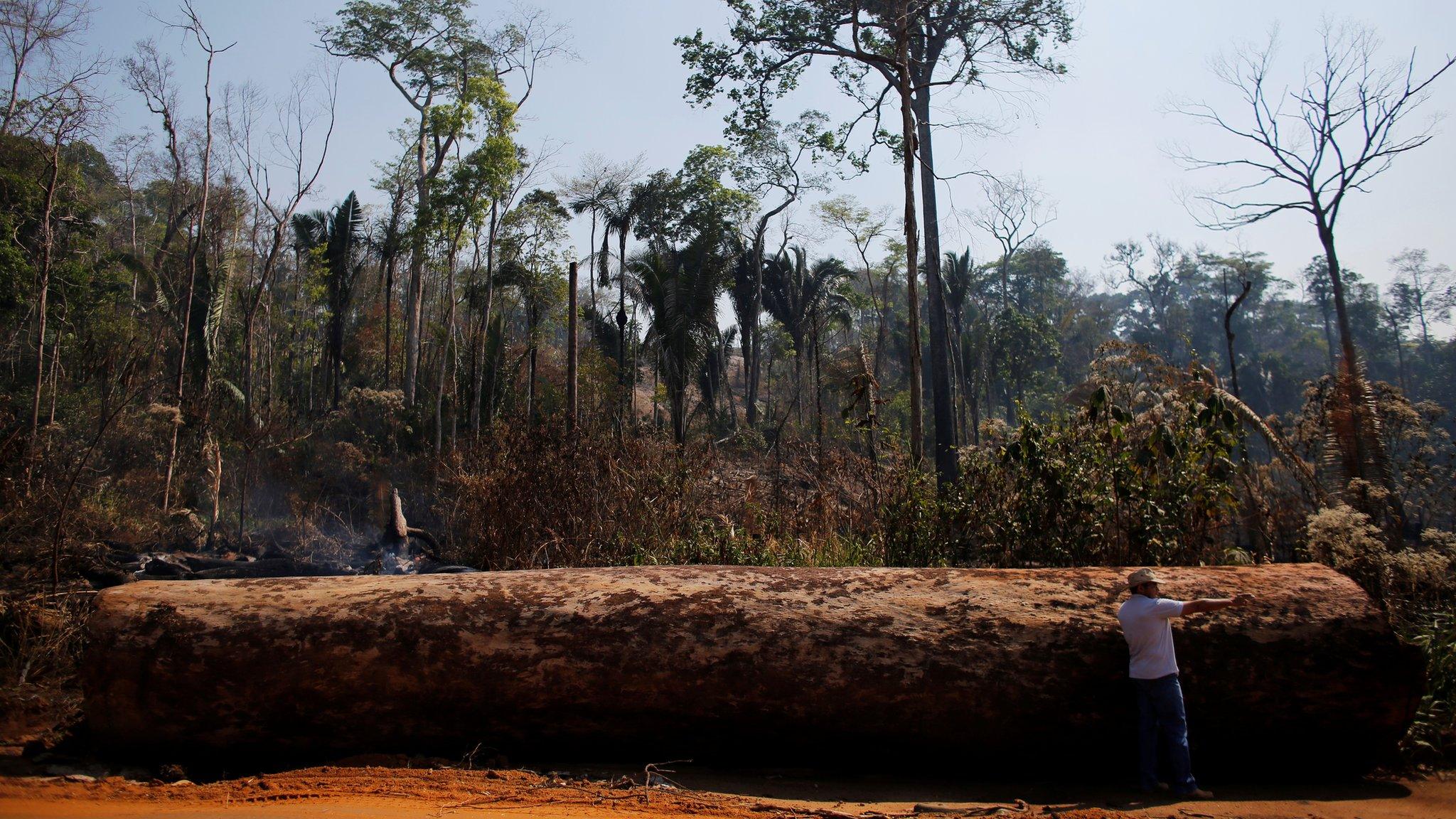
- Published2 July 2019

- Published20 July 2019
